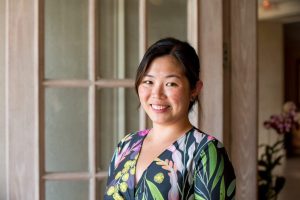Already a member? Click here to login.

Australian Diabetes Educators Association
Already a member? Click here to login.

Already a member? Click here to login.
Dietitians are one of the fastest growing health professions to become Credentialled Diabetes Educators (CDEs) as one dietitian CDE says there needs to be more to help ‘break down that stigma that dietitians are simply the food police’.
Data by the Australian Diabetes Educators Association (ADEA), the national peak body for diabetes education, shows dietitian CDEs increased from 119 to 221 in December 2017–December 2022, representing an 86 per cent increase in that period.
With Dietitians Week starting on 20 March, Dr Ashley Ng — an ADEA member, dietitian CDE, and La Trobe University senior lecturer — said it was great to see more dietitians specialising in diabetes care.
‘There’s a growing population of people living with diabetes and we need the healthcare professional growth to provide the community with appropriate care,’ Dr Ng said.

Dr Ashley Ng says dietitian CDEs break down the stigma that dietitians ‘are simply the food police’. Photo: supplied
‘Diabetes is an increasingly common condition to come across in practice.’
‘Often in dietetic courses, you get only a few hours’ worth of university content about diabetes theory.’
Dr Ng said diabetes ‘is complex and complicated by a host of other socio-environmental factors’.
‘Seeing as there’s a large clientele base in the diabetes community, it makes sense for dietitians to be drawn towards specialising in this area,’ she said.
Dr Ng said ‘a lot of diabetes management revolves around food’, including helping people with diabetes understand the relationship between blood glucose management and food, as well as maintaining a healthy relationship with food.
‘Life isn’t and shouldn’t be about counting carbs and calories,’ she said.
‘Food isn’t just another mathematical equation consideration; it plays a huge role in our social interactions.
‘We need more holistic dietitians to be CDEs to help break down that stigma that dietitians are simply the food police.’
Dr Ng said if other dietitians were interested in becoming CDEs, she encouraged them to ‘speak to and listen to people from the diabetes community’.
‘Their stories will impact you and change the way you practice. Always look at the person behind the condition,’ she said.
The theme of the 2023 Dietitians Week is #DietitiansImproveLives and Dietitians Australia has developed a digital toolkit you may use to help spread awareness about how dietitians improve lives. You may join the celebrations by visiting the Dietitians Week website.
Dietitians are one of the fastest growing health professions to become Credentialled Diabetes Educators (CDEs) as one dietitian CDE says there needs to be more to help ‘break down that stigma that dietitians are simply the food police’.
Data by the Australian Diabetes Educators Association (ADEA), the national peak body for diabetes education, shows dietitian CDEs increased from 119 to 221 in December 2017–December 2022, representing an 86 per cent increase in that period.
With Dietitians Week starting on 20 March, Dr Ashley Ng — an ADEA member, dietitian CDE, and La Trobe University senior lecturer — said it was great to see more dietitians specialising in diabetes care.
‘There’s a growing population of people living with diabetes and we need the healthcare professional growth to provide the community with appropriate care,’ Dr Ng said.

Dr Ashley Ng says dietitian CDEs break down the stigma that dietitians ‘are simply the food police’. Photo: supplied
‘Diabetes is an increasingly common condition to come across in practice.’
‘Often in dietetic courses, you get only a few hours’ worth of university content about diabetes theory.’
Dr Ng said diabetes ‘is complex and complicated by a host of other socio-environmental factors’.
‘Seeing as there’s a large clientele base in the diabetes community, it makes sense for dietitians to be drawn towards specialising in this area,’ she said.
Dr Ng said ‘a lot of diabetes management revolves around food’, including helping people with diabetes understand the relationship between blood glucose management and food, as well as maintaining a healthy relationship with food.
‘Life isn’t and shouldn’t be about counting carbs and calories,’ she said.
‘Food isn’t just another mathematical equation consideration; it plays a huge role in our social interactions.
‘We need more holistic dietitians to be CDEs to help break down that stigma that dietitians are simply the food police.’
Dr Ng said if other dietitians were interested in becoming CDEs, she encouraged them to ‘speak to and listen to people from the diabetes community’.
‘Their stories will impact you and change the way you practice. Always look at the person behind the condition,’ she said.
The theme of the 2023 Dietitians Week is #DietitiansImproveLives and Dietitians Australia has developed a digital toolkit you may use to help spread awareness about how dietitians improve lives. You may join the celebrations by visiting the Dietitians Week website.